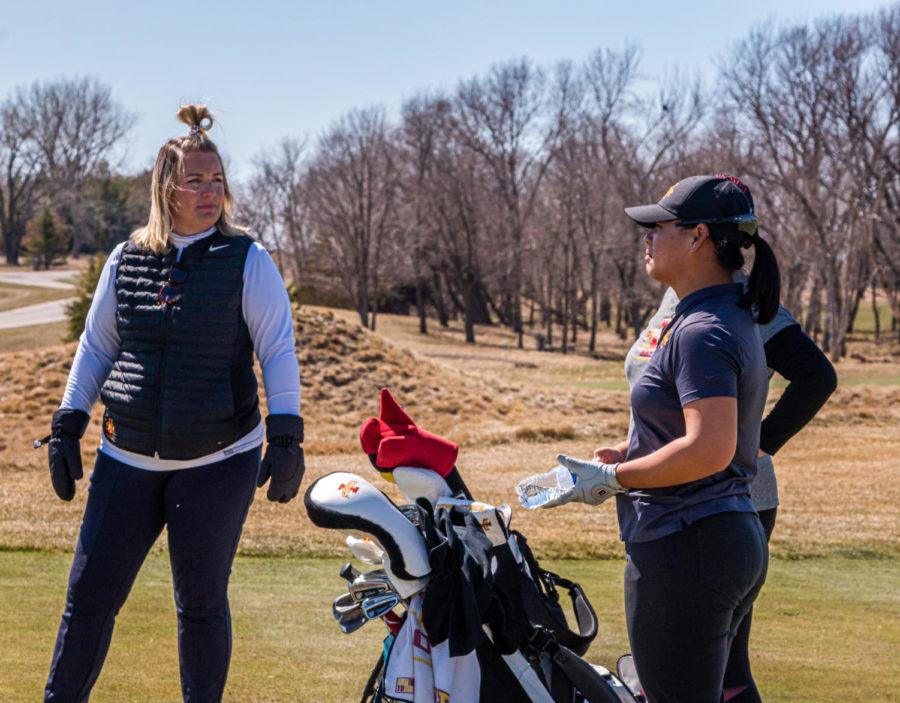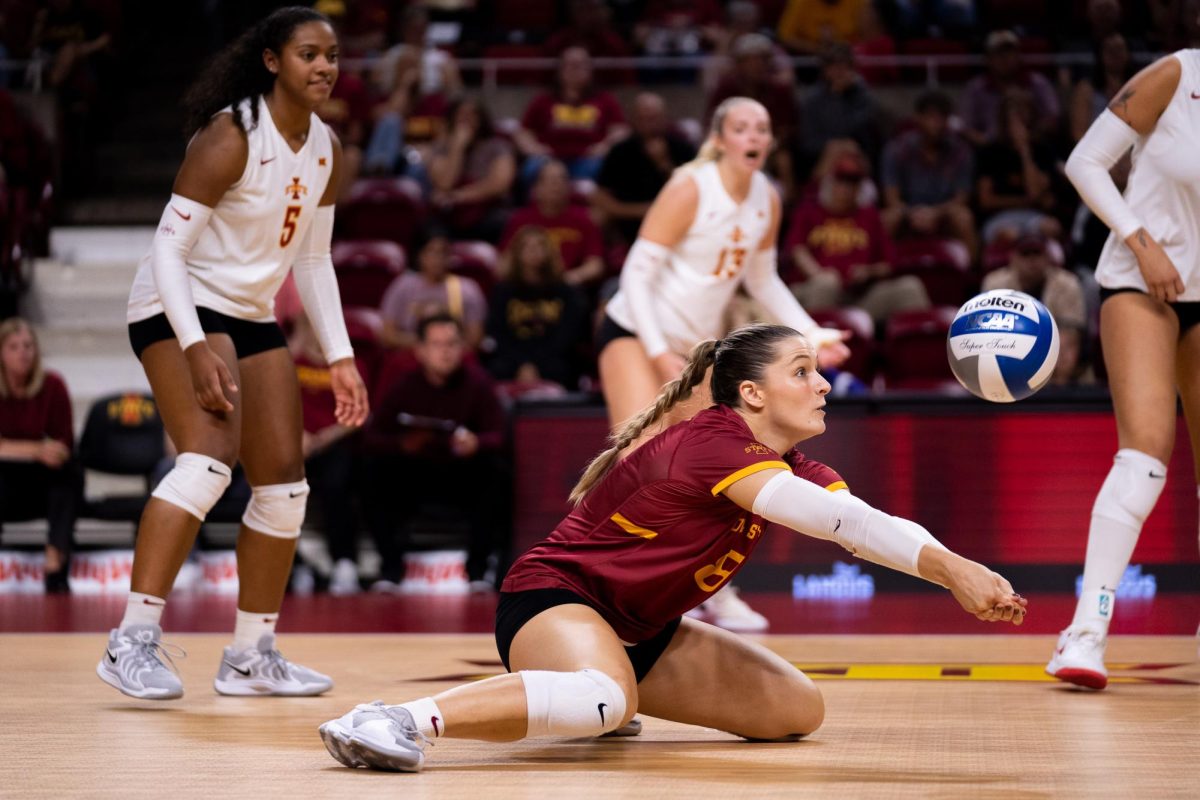Escalating problem of eating disorders among athletes discussed at program
March 30, 1998
Eating disorders among athletes has become an escalating problem, according to presenters for “Starving to Succeed,” a program held last week by the YWCA.
Dr. Brooks Morse, staff psychologist and eating disorders coordinator for the Student Counseling Service, and Lauren Muser, senior in English and former Iowa State athlete, said eating disorders are on the rise.
Morse and Muser said athletes are deceived into thinking that lower body weight results in better physical performance.
They also said an eating disorder can be triggered by excessive dieting, intense training or negative reinforcement from a peer or coach.
Morse added that high-risk sports for female athletes include those that emphasize a lean body appearance such as gymnastics, ballet and cross country. Males involved in excessive bodybuilding and wrestling also are susceptible, she said.
According to information provided by Student Counseling Peer Educators, the number of diet product advertisements in popular women’s magazines has been on the rise for the past 20 years.
“Americans spend about $300 million per year on diet products, and 80 percent of all American women are on diets,” Morse said.
Muser, who is a former ISU soccer player, said some of the problem originates with coaches.
“The coaches believe that lower body fat will equal better performance. They go on appearance alone; they don’t check your body fat,” Muser said.
Muser added that she always had assumed her body fat percentage should stay between 17 and 19 percent. She said in reality the recommended percentage for women actually fluctuates between 20 and 25 percent, and that the percentage for men is between 14 and 16 percent.
She said combating the eating disorder problem should involve educational eating disorder programs for both athletes and coaching staffs.
Although she was aware of eating disorders as an ISU athlete, Muser said she never received warnings or education about them.
During Wednesday’s program, Morse said a higher incidence of eating disorders among athletes exists because athletes assume that abusing their bodies for a sport is not an eating disorder. She also said female athletes are at a higher risk.
Muser attributed part of the increase to the degree of competitiveness at the college level.
“When you are playing for a Division I team, college athletics treat your body as a machine. At times you feel like it’s not even your body; it is just being used for their gain,” she said.
A significant loss of body fat not only affects athletic performance, but cognitive functions as well, Morse said.
“Clients that have eating disorders experience increased feelings of depression, lack of concentration and trouble sleeping,” she said.
Muser said expected body-fat percentages are overblown in college competition.
“Less body fat does not necessarily result in better performance. It is a psychological reinforcement supported by more visible muscle tissue and compliments from peers, which causes the athlete to have a higher level of confidence in their performance.
“College athletics looks at sports as a business and the player as a machine. If the machine breaks, the organization is not just out a player, but the player is also out their body as well,” Muser said.
Seeking help is the easiest way to recover from an eating disorder, Morse said, adding that the Student Counseling Service offers free and confidential programs to all ISU students. Programs offer eating disorder screening and assessment, individual counseling and group counseling.
Morse said convincing someone that they have an eating disorder should not be a power struggle. She said sufferers must be the first to understand that they have a problem.
She added that the battle against eating disorders in today’s society is far from over and that education and awareness need to be enforced.
For more information about eating disorders, students can contact the ISU Student Counseling Service at 294-5056.






